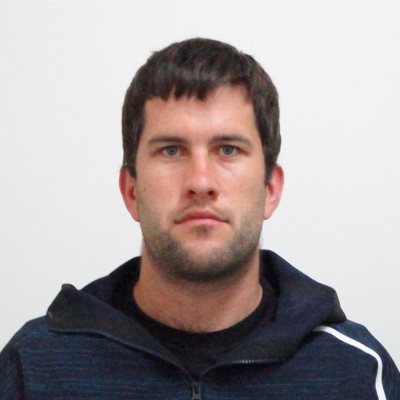Carl Edwards is one of our ambassadors. With a background in coaching, his career has led him from New Zealand to Rotherham via the MLS. Here’s his story.
Carl Edwards’ experience in analysis did not start off in the most conventional way. Back in 2012, he joined New Zealand football as part of an internship in Coach Education, where his placement supervisor was Gary Connell.
“At the time, [Gary] was the analyst with the NZ Women’s National Team,” explains Edwards, talking to APFA about his journey within analysis.
“I loved what he was doing, which led me to learning more and teaching myself.”
“From there, I ended up in the second semester of my internship as the Analyst, and eventually First Team Manager, of the NZ Futsal team.”
It was the beginning of the journey which would see Edwards go from New Zealand to America before landing at his current role, as the Head of Analysis for Rotherham United.

“I think I learnt a lot from my time with NZ Football as you realise that you are one of a lot of people trying to break into working in football and to be one of those you feel very fortunate. If I didn’t have these opportunities, I wouldn’t have progressed to where I am today”.
But it was not the opportunities on their own which helped Edwards reach his goal of working professionally in football analysis. He is keen to emphasise the support he received from the likes of Dave Payne (Head of Futsal at NZ Football), Scott Gilligan (New Zealand Futsal National Team Coach) and then-Auckland City FC Head Coach Ramon Tribuletx.
“The amount of people you get to meet and connect with is amazing.”
Edwards moved on to Auckland City FC to 2013, where he got to experience something unforgettable.
“The 2014 FIFA Club World Cup was the highlight of my career. Finishing 3rd Place as a semi-professional club and being minutes away from playing Real Madrid in the Final! It was a very proud moment to be representing New Zealand and Oceania in the tournament.”
For Edwards, this early taste of success grew quickly to a thirst for more: “I think it has made me want to have success wherever I go and also represent where I am from.”
“Success can be in two parts for me. One is obviously the accolades and success on the pitch. However, I also feel that it can be building and being part of creating a successful project. One that, when you move on, you feel like you have left the club, team or department in a better place than it was when you arrived”.
That desire to improve the club where you are working can be seen clearly in Edwards’ experiences at Houston Dynamo in the MLS. There, as Head Video Analyst, he was essential to establishing and maintaining the club’s unique playing identity, providing analysis from the U13 age group, all the way up to the first team.
“I think it is testament to the hard work being done in the academy at the club and credit goes to Paul Holocher, Tony Vigil, Kenny Bundy and all of the staff at the Dynamo. You now are seeing home-grown players being involved in the 1st team squad regularly, including Juan Castilla, Danny Rios, Xavier Valdez, Marcelo Palomino”.
Edwards is clear that being able to use tools like Hudl Pro Suite enabled Houston Dynamo to make huge strides forward.
“[It was] vital to us across all levels of the club, from the MLS and NWSL teams where winning is the key, all the way down to the U13s in the Academy where development is the focus. For us, we were able to make huge strides as it provided a streamlined process for the club, where players would undertake their own analysis and coaches created playlists and files of style of play throughout the club.”
The fact that Carl Edwards originally got into the world of analysis through an internship focused on coaching is something that has continued to shape his career. At Auckland, Edwards worked in a Football Development role and he feels it has impacted how he approaches building out analysis structures within the youth space.
“I think player development is important for every club. Obviously, success at a lot of clubs is results-based, however you are seeing a lot of players coming through club academy systems or being brought in at a younger age and being sold for significant amounts of money, or being involved in the first teams on a regular basis.”
“I don’t think a coaching background is essential as a lot of people have a good understanding of the game, however I have personally found the soft skills of knowing the right times to speak to the coaches and what kinds of information the coaches want or need at certain times to be the benefits from my early coaching experiences.”
Edwards is now based in England with Rotherham United, a role that has once again seen him put his ideas to the test in a new environment.
“Obviously there are a lot more games here in England.”
“In League 1 last year, we played over 50 games including cups. I think there are a lot of similarities, more than many realise, and I still work in very much the same way.”
“However, this season we now have a second analyst at the club which means we can work smarter and be more efficient, as well as being able to look at both short and long term”.
Rotherham won the Papa John’s Trophy at Wembley as well as a League 1 promotion in Edwards’ first season but he has still found time to also work on how analysts can increase their collaboration.

He recently conducted a survey of performance analysts, with nearly two hundred responses, looking at both departmental behaviours and the experiences of those working in analyst roles.
Though the results are being processed, a common theme is the high turnover within these roles: “I think every club has its own challenges. Some departments are understaffed which means analysts are having to work a lot more hours. We all know it is not a 9-5, five days a week job. But some are working over 60 hour weeks.”
“This means that we are seeing high turnover of staff. I think analysts themselves are always wanting to develop and improve but, at times, this is not the case or always possible which is also why you also see this turnover”.
As a result, Carl is delighted to be involved with the APFA and the role it will play in supporting those working in the industry to overcome the barriers they face.










